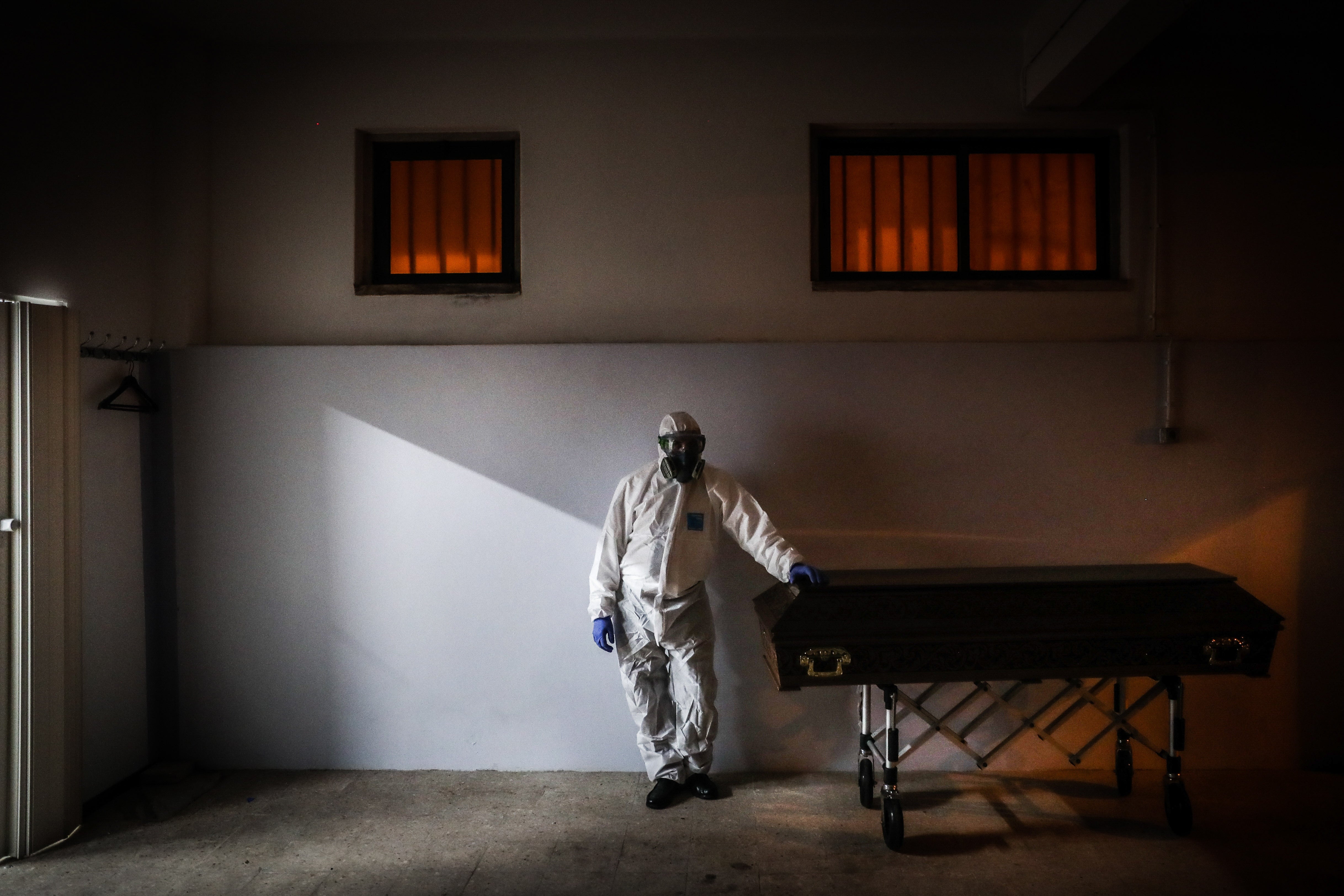How Portugal went from pulling off a Covid miracle to desperately hoping for one
Hailed for its initial pandemic response, an overwhelmed Portugal is now seeking international help to cope with the coronavirus, reports Graham Keeley


When the Covid-19 pandemic first reached Europe, Portugal was hailed as the poster child for its swift reaction while other countries were overwhelmed.
Now with the world's worst per capita rate of coronavirus cases and deaths, a desperate Portugal has asked Germany for medical help. Only seven intensive care beds were left in the country by Sunday, as the country’s health service was overwhelmed by the pandemic.
The German military has agreed to send 27 doctors and paramedics as well as ventilators and beds for patients while intensive care patients will be flown to Austria for treatment.
Portugal extended a nationwide lockdown until mid-February, banned international travel and prime minister Antonio Costa accepted the blame for the crisis.
“We have moved from the Portuguese miracle to the country that hopes for a miracle,” said Miguel Guimaraes of the Portuguese Medical Association.
So how did this country of 10 million people go from being one of the few international success stories in those grim early days of the crisis to one teetering on the verge of collapse?
Government ministers and health experts said Portugal had been caught in a “perfect storm” of factors including relaxing restrictions over Christmas, a cold weather snap, a false sense that the pandemic was over because of the vaccine programme and foreign variants of Covid-19.
Antonio Sales, Portugal's health secretary, said no country could always be exemplary when faced with a health emergency which is constantly changing.
“I don't think we were great in the past and we are awful now. As in the past, we reject this kind of ranking between countries. One cannot be so naive as to think that a country's response will always be effective in all moments until the end,” he told The Independent.
“The rise in new infections during Christmas holidays happened in many countries. Probably that was a combination of different factors: mobility, pandemic fatigue, circulation of new variants and cold weather.”
Portugal, which has so far reported a total of 12,179 deaths and 711,018 cases, has the world's highest seven-day rolling average of cases and deaths per capita, according to the Our World in Data tracker.
The justice ministry requested a refrigerator truck to preserve bodies as funeral homes have become overrun with the number of deaths.
When Covid-19 reached Europe in March, Portugal was among the fastest to react, prompting international praise.
The country was the last in western Europe to report a confirmed case of the pandemic on 2 March.
The minority Socialist government took the decisive action to impose a lockdown mid-March when there were only 112 confirmed cases and no fatalities.
At the same time, neighbouring Spain only imposed a state of emergency when it had more than 5,000 cases and 133 deaths.
As Italy and Spain struggled to cope with the number of patients going to hospital, Portugal was advised to avoid flooding intensive care units with all but the most serious cases.
The government decided about 80 per cent of Covid-19 cases could be treated at home by doctors who could visit patients.
The gamble paid off, freeing up doctors and nurses in hospitals to concentrate on the most critical cases.
Now eleven months on, the situation is drastically different.
Dr Ricardo Mexia, president of the Portuguese Association of Public Health Doctors, said the country had not seen the worst of the crisis.
“It was a perfect storm of factors. We relaxed too much in the Christmas period with no limit on gatherings, then there was a cold snap afterwards which helps the pandemic,” he said.
“Then the vaccination programme started which made people think ‘it is all over’ and they relaxed too much. To add to that we have had the British, Brazilian and South African variants complicating the situation.”
Dr Filipe Froes, a respiratory consultant who is part of a public health task force which advises the government, said Portugal had not learnt the lessons from its own success.
“During the first wave, we were one of the first countries to lock down and we had a very small number of cases. Then we failed to appreciate the fragility of our health service and to failed to learn lessons from the pandemic,” he told The Independent.
“We have been too lax before over Christmas and our health service is now at its limit just when it is cold and this helps the pandemic. We have to make coronavirus patients the priority and other cases are now of secondary importance.”
Dr Guimaraes believed the next few weeks will be critical for Portugal.
“Unfortunately, we are still far from having the situation under control. Health services are on the edge, doing catastrophe medicine,” he said.
“Even when the situation calms down, it will be very difficult to make up for the delays in non-Covid patients, which is one of our biggest concerns.”
Join our commenting forum
Join thought-provoking conversations, follow other Independent readers and see their replies
Comments



Bookmark popover
Removed from bookmarks